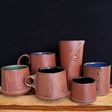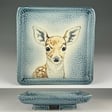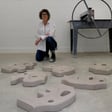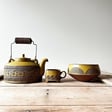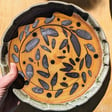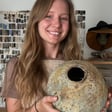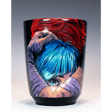
The Art Of Simplicity w/ Whitney Gill
In this episode of Shaping Your Pottery, Whitney Gill shares her journey into the world of ceramics, influenced by her artistic family and a defining moment at the Haystack Mountain School of Craft. She discusses embracing simplicity in pottery design and the importance of documenting one's creative process. Whitney emphasizes the role community and craft schools like the Maine Crafts Association play in her development as an artist. She reflects on her evolution during COVID-19, experimenting with her craft, and tapping into inspirations from her surroundings and her partner's music. Whitney offers advice on finding one's own pottery voice, the value of community involvement, and promoting one's work through social media. The episode concludes with encouragement that you don't need to be full-time to be a legitimate artist; the key is starting where you are with available resources. You can learn more about whitney by checking out her instagram https://www.instagram.com/whitneymgill/
Join The Shaping Your Pottery Newsletter By Clicking This Link shapingyourpottery.com/newsletter
For more episodes and resources click here www.shapingyourpottery.com
00:00 Introduction and Newsletter Invitation 00:19 Guest Introduction: Whitney's Pottery Journey 01:50 The Influence of Artistic Parents 02:35 Community and Craft Schools 07:18 COVID and Pottery Evolution 14:07 Designs and Patterns in Pottery 16:10 Finding Your Unique Pottery Voice 19:22 Balancing Life and Pottery 22:45 Final Thoughts and Advice

